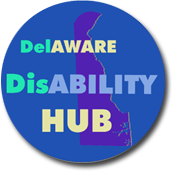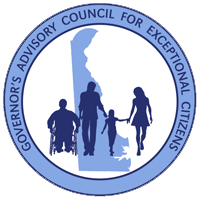Special Ed and IDEA
The transition from school to adult life can present you with many paths to choose that may be hard to follow. The links below provide information and resources to assist with successful transition planning in education.
Individuals with Disabilities Education Act (IDEA)
 IDEA was adopted by the federal government in 1975 to ensure that all children with disabilities have equality of educational opportunity, full participation, independent living, and economic self-sufficiency.
IDEA was adopted by the federal government in 1975 to ensure that all children with disabilities have equality of educational opportunity, full participation, independent living, and economic self-sufficiency.
IDEA aims to curb educational problems associated with low expectations and lack of focus on alternative research, teaching methods, and tools by focusing on student rights and the responsibility of public schools to children with disabilities.
Six Major Principles of IDEA
- Free Appropriate Public Education (FAPE)
- Appropriate Evaluation
- Individualized Education Plan (IEP)
- Least Restrictive Environment (LRE)
- Parent Participation
- Procedural Safeguards
Principles that should be considered to ensure children with disabilities receive an equal education are:
Free Appropriate Public Education (FAPE)
IDEA requires schools to prepare Individualized Education Plans (IEP), which will provide "meaningful educational benefit" to children with disabilities. The "meaningful educational benefit" requirement includes a focus on raised student expectations, appropriate progress, and transition into postsecondary education and independent living.
Local school boards and public schools are responsible for ensuring that all children with a disability receive a FAPE.
- Free and Appropriate Public Education (FAPE)
- Section 504 of the Rehabilitation Act of 1973
- What is and isn't covered under FAPE
Appropriate Evaluation
Schools are required to conduct appropriate evaluations and use the results of those evaluations to create a unique plan for each student who show signs of a disability. This plan is the Individualized Education Plan or IEP.
A team of trained evaluators using correct evaluation materials and procedures is responsible for administering an unbiased, fair assessment for each student in a timely manner.
The complete evaluation makes recommendations regarding a child's eligibility for special education services. See Title 14, section 900, subpart 925 D of the Delaware Code for more information on evaluations.
Individualized Education Plan (IEP)
The IEP is a written document, developed by an IEP team, which includes parents/guardians and uses existing evaluation information in order to meet a student's unique educational needs.
An IEP must include the following information:- The student's present levels of educational performance;
- Measurable annual goals and benchmarking objectives;
- Services and supplementary aids to be received;
- Program modifications and accommodations to be provided;
- and a detailed explanation of instances where a student is not participating in the general classroom and why.
An IEP is also required to include information regarding student progress as well as "transition" to adult life. Finally, it is required that an IEP include concerns of the parents and child, the strengths of a particular child, and the specific "academic, developmental, and functional needs" of the child.
A Guide to the Individualized Education Program
Least Restrictive Environment (LRE)
The IDEA emphasizes that a student with a disability is entitled to placement in a general education setting or the least restrictive environment (LRE). The IEP team must explore placement that allows a student to be in the general public classroom. It may include classroom modification, supplemental aids, alternative instructional methods, or additional services.
If the IEP team determines a student cannot learn in a general education setting, they must determine the LRE for that student to get an education.
Parent Participation
Parents have the legal right under the IDEA to equal participation in the decisions regarding placement and LRE of their child. They must be notified regarding any planned evaluation, have access to planning and evaluation materials and involvement in all meetings regarding their child's placement. Parents also have the right to refuse further evaluation. Both students and parents have the right to be invited to IEP meetings.
Procedural Safeguards

Under the IDEA procedural safeguards, parents have a right to review all educational records about their child, receive notice before meetings about their child's evaluation, placement, and identification. It is also the right of the parent to obtain an independent Educational evaluation (IEE) for consideration at these meetings.
If disagreements arise, parents have the right to request mediation or due process hearings with state-level education agencies, and beyond. They may appeal the decision in state or federal court.
The following are principles that should also be considered to ensure children with disabilities get an equal education.
Low Incidence
A low incidence disability occurs in 1% of the school's population of students with a disability. The most common are Autism, Visual Impairment and Hearing Impairment.
Extended School Year (ESY)
Extended School Year services are designed to support a student with a disability to maintain the academic, social/behavioral, communication, or other skills that they have learned as part of their Individualized Education Program (IEP) or Section 504 accommodation plan. In order for a student to receive ESY services, the student must have evidenced substantial regression (loss of skills) and recoupment (relearning of skills) issues during the previous IEP year and/or there is evidence of emerging skills which are often referred to as "breakthrough" skills. The focus of the services provided to the student as part of an ESY program are generally not on learning new skills or "catching up" to grade level, but rather to provide practice to maintain previously acquired or learned skills. A student who has received ESY services in previous years may not be eligible in future years as determinations for eligibility of ESY services are made annually by the IEP or 504 plan (which includes the parent and students age 14 or older).
Due Process
Due Process hearings allow parents and districts to each present their case to an impartial Hearing Officer for a written binding decision on the best outcome for the student when there are disagreements on the need for services. The best defense against misunderstandings is good information and communication during the development of the IEP and its implementation.
Gifted and Talented
A child with a disability may show exceptional intelligence or artistic abilities. These students are often referred to as Twice Exceptional. Under IDEA, a school cannot refuse to assess or offer special education to a child with increased intellectual ability.
For more information, please see the Gifted and Talented section under education on this website.









